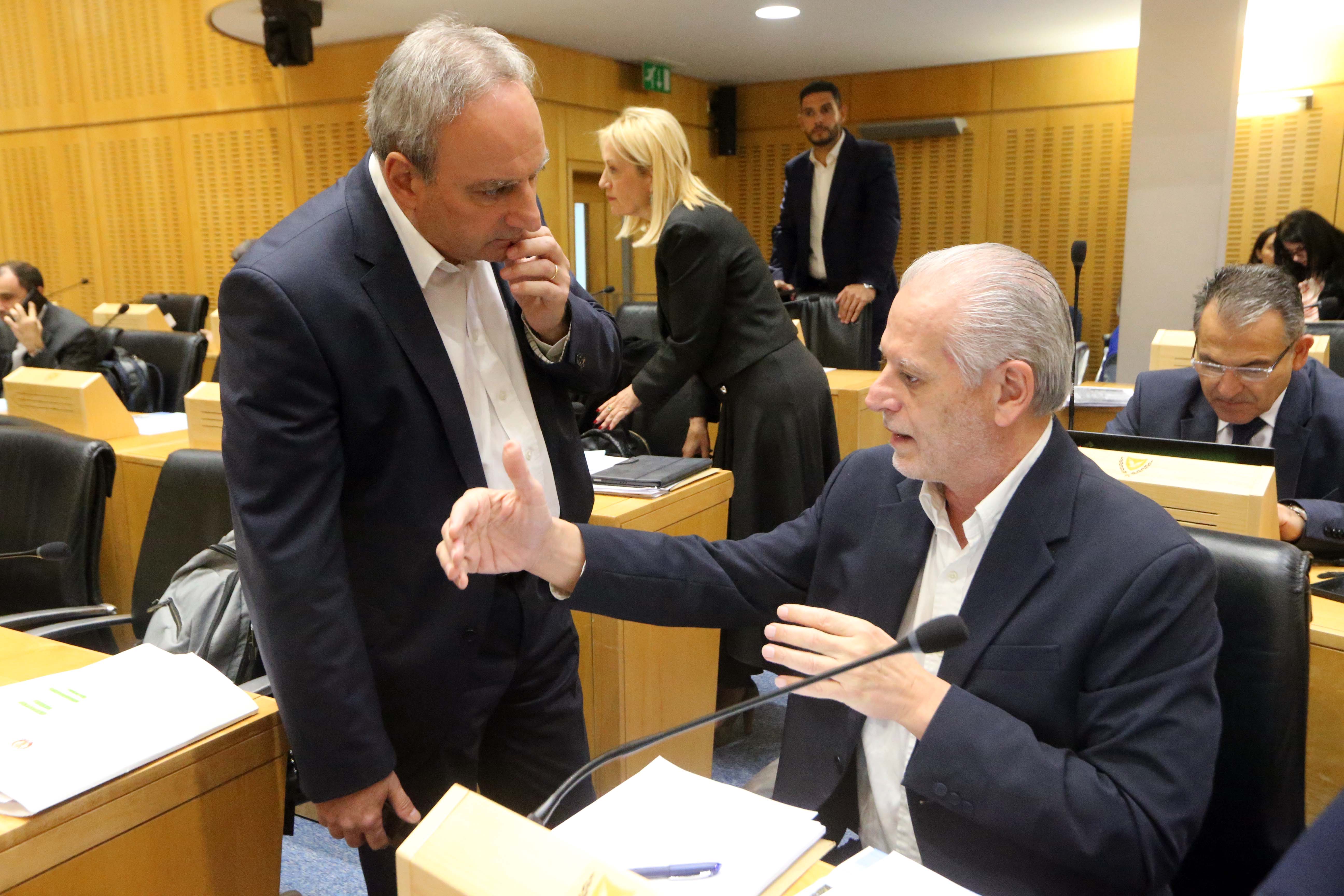The three-day debate on the 2025 state budget got underway on Monday, with the proceedings set to wrap up on Wednesday evening with the vote at the House plenum.
The first to take to the podium were the leaders of the seven parliamentary parties, with remarks on the economy, social affairs and the Cyprus issue.
The leaders of Disy, Akel and Diko were afforded 40 minutes each to speak, while 20 minutes were allotted to the heads of Elam, Edek, Dipa and the Greens. The leaders of the smaller parties spoke first.
On Tuesday and Wednesday, each of the remaining MPs will make their respective statements.
Wednesday’s session, featuring some speeches and the actual voting, is expected to be the longest – as MPs will be voting on scores of amendments to the budget.
The state’s balance sheet is expected to pass, as it has the backing of Disy, Diko, Dipa and Edek. Opposition Akel will vote against, while Elam and the Greens have yet to make their position clear.
However, despite the fact that her party is set to vote the budget through, Disy leader Annita Demetriou began her speech with a scathing attack on the government.
“First of all, of course, the government seems to not understand what exactly is happening and what priorities need to be set,” she began, adding that “the responsibility lies with the government and all the parties participating in it”.
“Instead of moving forward, we are stagnating. That is what we are getting, that is what ordinary people are getting. Instead of Cyprus rushing to catch up with developments, it often lags behind. Things are happening too little, too late,” she added.
She promised that her party would “never let the ship crash on the rocks” and that it will therefore “continue to stand guard over normality and the correct course, even if this costs us”.
She then added that “it is no coincidence that the policies which bring results have been borrowed from our party because, unfortunately, for almost two years now, there has been no compass.”
Closing her speech, she confirmed her intention to vote the budget through, though said she would submit a number of amendments throughout the process.
Akel boss Stefanos Stefanou began his remarks by confirming his party would vote against the budget, which he said “lacks a coherent strategy to deal with day-to-day problems…”
Stefanou railed against “big business” making profits while the average person is under severe financial strain.
“About one is six Cypriots can’t afford to keep their home warm,” he said.
In addition, some 130,000 people live under the poverty threshold.
“So today…we directly ask the government of Nikos Christodoulides and the other political parties: are you with the society of the many, or with the interests of the few and privileged?
On foreign policy, Stefanou called “extremely dangerous” the president’s stated intention for Cyprus to apply for Nato membership. This, he said, would link a solution of the Cyprus problem to Nato, allowing Turkey “to play on its home ground”.
Diko leader Nicolas Papadopoulos – whose party is part of the government coalition – took a far more positive tone. Despite the challenges facing the economy, he noted, Cyprus’ sovereign credit rating has been upgraded, meaning a lower cost of borrowing for the state.
He also spoke of “significant investments” in energy, healthcare, education and innovation.
Monday’s proceedings had begun with a reading of the summary of a report compiled by the House finance committee.
The report states that the medium-term outlook for the Cyprus economy is a positive one, however significant uncertainties remain.
It expresses concern over the high cost of living, increased borrowing costs and high energy prices – mainly impacting medium and lower-income groups.
Gross Domestic Product in 2025 is estimated at €33.86 billion. The harmonised consumer price index is projected to come to 2 per cent.
The budget provides for €9.4 billion in expenditures – a 3.25 per cent increase on 2024.
Payroll expenses amount to €3.6 billion, operating costs €1.4 billion, transfers €4 billion, and capital expenditures €1.1 billion.
On the revenues side, direct taxes will raise a projected €3.9 billion, indirect taxes €4.6 billion, plus another €1.8 billion in non-tax revenue.







Click here to change your cookie preferences